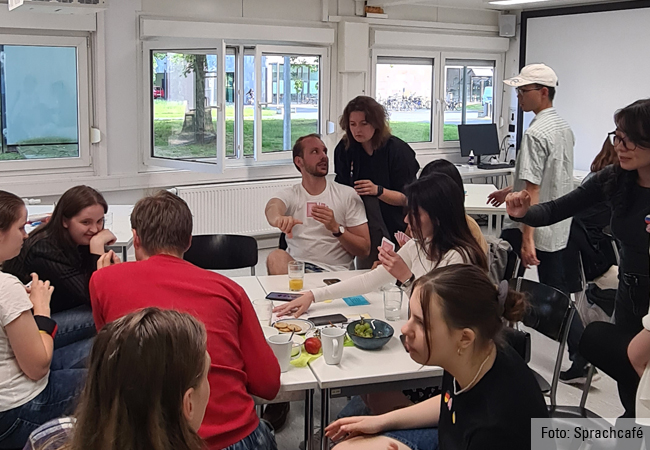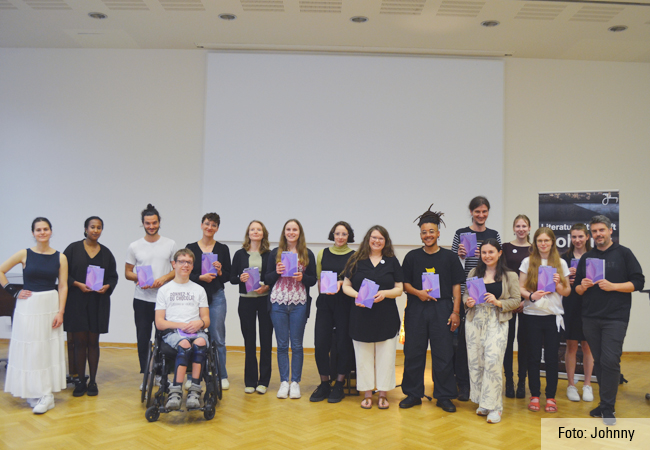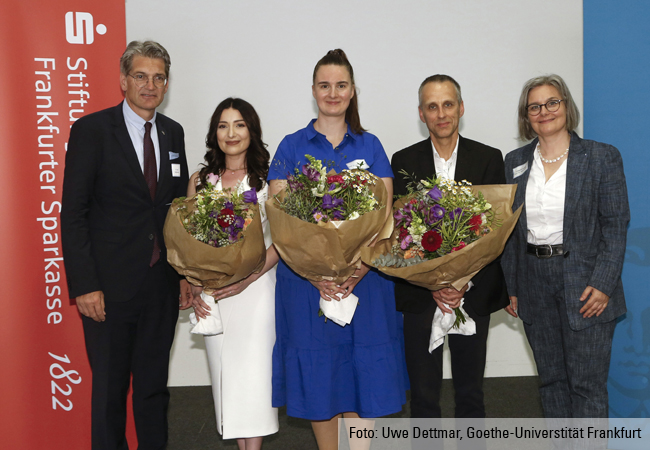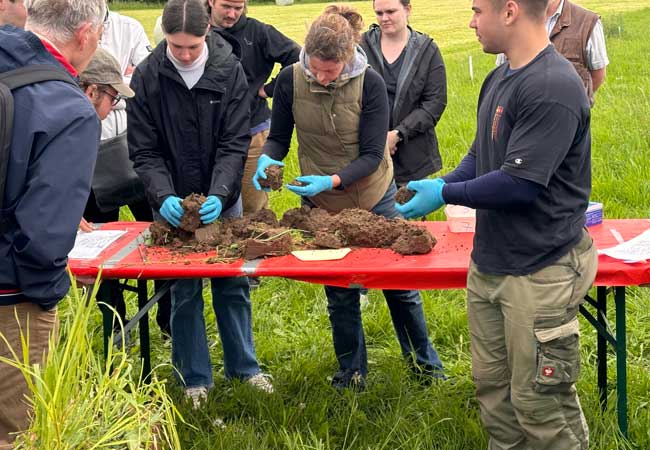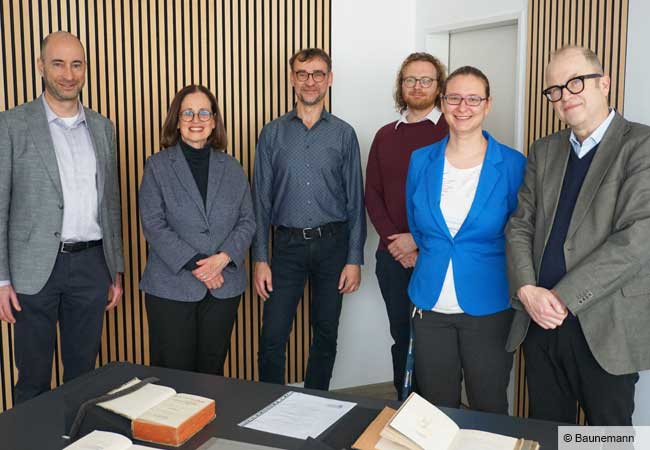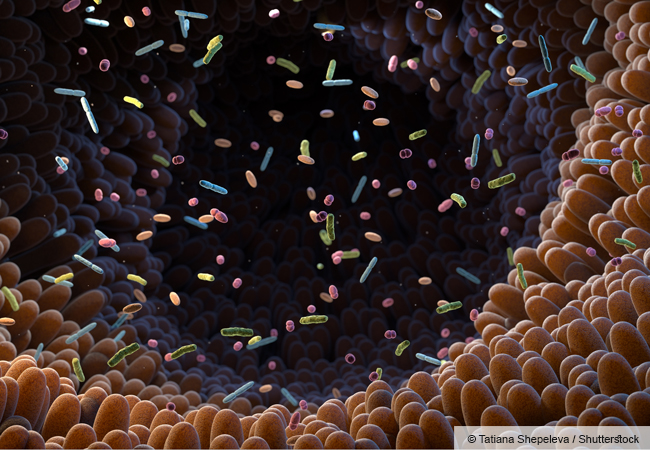Review of the lectures delivered by writer and translator Aris Fioretos.

This was a first at the Frankfurt Poetics Lectures: a writer who does not write his script in German, but delivers his lectures in German. Unsurprisingly, this was one of the aspects discussed at the accompanying workshop, which Fioretos himself attended.
Aris Fioretos is known for being multilingual. German was his first language, which he learned from his Austrian mother; he grew up in Sweden, but his roots on his father’s side are Greek. In addition to having taught and conducted research in several countries, including the US, he also translates into Swedish. “Even if I don’t really feel as though I have a geographical home, I’m at home in many places,” Fioretos said in a recent interview with UniReport. He delivered his three lectures at Goethe University Frankfurt, which bore the title “Solar plexus – on a writer and his body,” with hardly a trace of an accent. He pursued an associative yet easy-to-follow stream of thought about the physical nature of writing. His reference point was the solar plexus, which is located in the chest and forms part of the vegetative nervous system. Fioretos, who was born in Gothenburg in 1960 and who writes, translates and likes tackling poetology questions, referred to some famous artworks in his lectures, including Rembrandt’s “Anatomy Lesson of Dr. Nicolaes Tulp”, using them to offer interesting observations as asides before speaking about himself. As such, the dead man in Rembrandt’s painting is also called Aris. The sensuality of names fascinates Fioretos, who was born in a country where boys were traditionally called Björn or Sven – and not Aris. After the first lecture on “yearning,” he dedicated the second one to “hunger” and the third and last to “electricity.” The inspiration for his latest novel, The Thin Gods, which was published in German translation early this year, came from the American band Television. Fioretos explains that its head man, the recently deceased charismatic guitarist and singer Tom Verlaine, wanted to create with his music something different than many artists who were playing the rock music that became mainstream in the 1970s. To illustrate the band’s special status, Fioretos played his audience their very first song, the rather jazzy Little Johnny Jewel, to convey to the audience the impact the song had on his 16-year-old self. Fioretos did not specify whether the hero in The Thin Gods, Ache Middler, is a literary revenant of the real Tom Verlaine. Middler’s ecstasies play out more in his head; his inventor describes him as an innovator of music who transcends borders and would prefer to vanish into the background behind his work. A poetological principle of his creator is definitely at work here: Aris Fioretos is highly suspicious of literary biographism, i.e. the increasing tendency in today’s literature to equate creators and their works.
Durs Grünbein at the workshop
Hosting the workshop accompanying the Poetics Lectures was comparatist Achim Geisenhanslüke (Goethe University Frankfurt). Following lectures by Barbara Naumann (Zurich) and Christian Metz (Aachen), the workshop ended with a discussion between translators and writers, which was also joined by Fioretos’ friend and colleague Durs Grünbein, who himself was Goethe University’s poetics lecturer in the 2009-2010 winter semester.
Achim Geisenhanslüke opened the workshop by asking Paul Berf, who has translated numerous texts by Fioretos into German, what he found so special about the work of this particular Swedish author. “He makes it easy for the translator because he writes well. Even if his books have very different tonalities, you don’t have to guess at what he wants to say or how he wants to say it,” Berf stressed. Geisenhanslüke followed up by asking Fioretos whether his being a translator makes the interaction with his own translator unusual. “For me Paul Berf is a verus amicus, a true friend, with whom I can have very fruitful discussions. I only translate texts that I would have liked to write myself. So for me translation is not an occupation in the normal sense.”
Fioretos and his poet friend Durs Grünbein share a keen interest in poetological questions. Together they have produced a book called Verabredungen [Appointments], with texts detailing recorded discussions that took place at a wide variety of locations. Some of the dialogs are also based on asynchronous communication by postcard. “For me, Aris Fioretos is a multilingual person,” Grünbein emphasized, adding that this says both too much and too little in the opinion of his subject. “Maybe this experience of difference is the nucleus of my work,” Fioretos said, adding that literary language is not exhausted in semantics, but also appeals to the senses, can sometimes be positively “smelled,” and has a certain appearance and color.
Translator, editor and publisher Hans Jürgen Balmes sees Fioretos as a “better friend of German literature” because he regards German literature with less bias and less prejudice, in a manner that is very close and loving. His prose pieces demonstrate the kind of refinement that might earlier have been created by an author like Alain Robbe-Grillet. Achim Geisenhanslüke then brought the discussion to an important aspect of the current poetics lectureship, pointing out that a lecturer who does not write in German but still delivers his lectures in German is truly special. Many observers had the impression that Fioretos’ literary multilingualism was definitely a stroke of luck for the Frankfurt Poetics Lectures.
Judith Schalansky will deliver the Frankfurt Poetics Lectures
in the 2025 summer semester. More information is available from https://tinygu.de/LYdYe.




